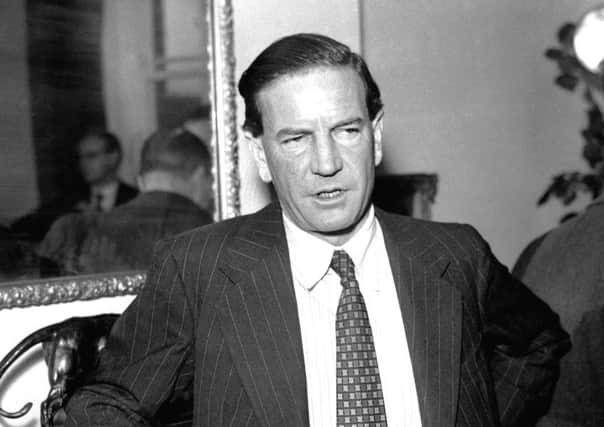Revealed: Soviet spy blamed escapees to save himself


The records show how Philby manoeuvred to try to keep himself out of the spotlight as Whitehall frantically sought to trace the two missing diplomats – even if it meant implicating his colleagues.
The disclosures are contained amid dozens of MI5 and Foreign Office files relating to the case released to the National Archives in Kew, west London.
Advertisement
Hide AdAdvertisement
Hide AdThe disappearance of Burgess and Maclean from the Foreign Office in May 1951 was the first inkling for the British establishment that there was a major Russian spy ring operating in their midst.
As MI5 tried to establish what had happened to the two men after they quietly slipped out of the country on a cross-Channel steamer having given their MI5 surveillance the slip, their associates immediately came under suspicion – not least Philby.
What the investigators did not know was that all three men had been recruited by the KGB while studying at Cambridge in the 1930s and spent the intervening years quietly working their ways into positions of power and influence, while betraying countless secrets.
Philby, by then a senior officer in MI6, was however doubly suspect. Prior to the flight of the two diplomats, Burgess had actually been staying at his home in Washington where Philby was stationed. He was also among a small number of officials aware of a breakthrough by US codebreakers which had enabled them to reopen an investigation into the leak of wartime telegrams between Winston Churchill and president Franklin Rooseveldt.
By early 1951, the investigation was closing in on one clear suspect – the dangerously unstable Maclean.
In the US capital, Philby and Burgess concocted a plan for Burgess to return to London to warn their fellow agent of the impending danger and tell him the time had come for him to flee to Moscow. What Philby had not expected was that Burgess would disappear with him – ensuring that he was immediately top of the list of suspected accomplices.
Initially Philby brushed off suggestions that the outrageous Burgess – known for his drunkenness and promiscuous homosexuality at a time when it was still illegal – could be involved in anything clandestine.
But as the investigation wore on, he appeared slowly to come round to the idea – no doubt in the hope of persuading his superiors that he was innocent.
Advertisement
Hide AdAdvertisement
Hide AdIn June 1951, he cabled MI6 chief Sir Stewart Menzies. “There is, I am afraid, very little doubt that Burgess had available the essential requirements of an espionage agent,” Philby wrote.
Philby even brazenly suggested that “one recruited the other” when Burgess and Maclean were at Cambridge, knowing that he had been responsible for bringing them both to the attention of the KGB.
While Philby was clearly trying to shift attention from himself he may have also wanted to make it impossible for Burgess to return Britain, knowing that he would only damage him further if he did.